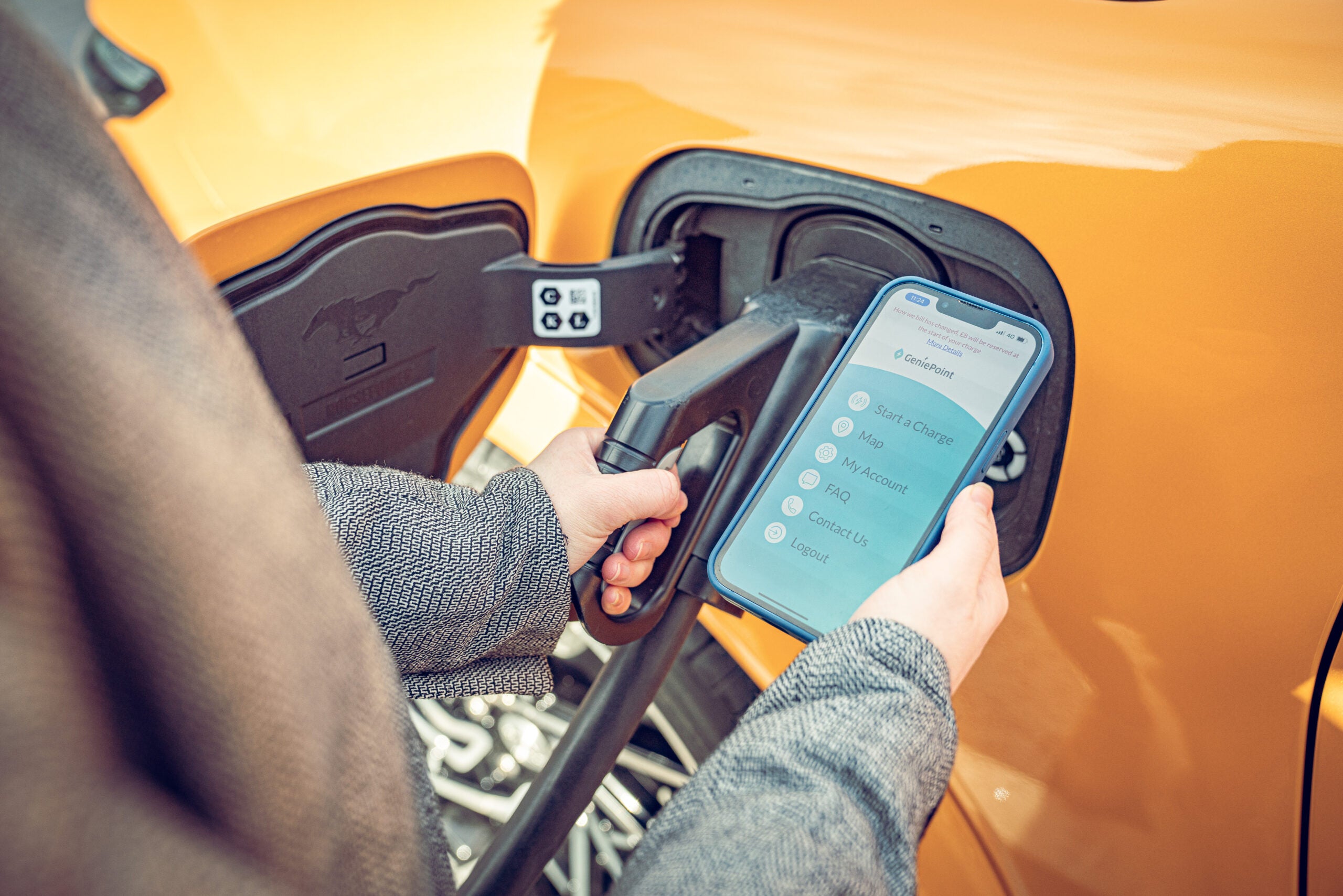
The UK government announced a new EV chargepoint strategy on Friday which it claims will improve access for drivers without off-street parking and also provide more fast charging for longer journeys.
The Department of Transport has committed GBP1.6 billion to expand the UK charging network and claimed around 300,000 public chargers would be available by 2030 when the sale of most ICE vehicles is banned.

Discover B2B Marketing That Performs
Combine business intelligence and editorial excellence to reach engaged professionals across 36 leading media platforms.
Chargepoint operators would be legally required to meet rigorous standards, enabling drivers to pay easily and find nearby chargers.
Government statisticians claim the 300,000 public chargepoints by 2030 would be equivalent to almost five times the number of fuel pumps on UK roads.
There were 420,000 pure-electric cars on UK roads at the end of February, The Guardian reported, citing comparison website Next Green Car. There were only 29,600 public charge points in the UK on 1 March, according to data company Zap-Map.
Under the Electric Vehicle Infrastructure Strategy, charging will become easier and cheaper than refuelling a petrol or diesel car and new legal requirements will require operators to ensure contactless payment is available while drivers will be able to compare charging prices and find nearby chargepoints via apps.
There are already multiple private apps supplying location, prices, charger availability and user feedback.
The government aims to expand the UK’s charging network, so that it is robust, fair and covers the entire country as well as improving consumer experience with significant support focused on those without access to off-street parking, and on fast charging for longer journeys.
GBP500 million will be spent to install high quality, competitively priced public chargepoints across the country.
This includes a GBP450 million Local Electric Vehicle Infrastructure (LEVI) fund, which will boost projects such as EV hubs and innovative on street charging.
A pilot scheme for the LEVI fund launched today will see local authorities bid for a share of GBP10 million in funding, allowing selected areas to work with industry and boost public charging.
The LEVI funding includes up to GBP50 million to fund staff to work on local challenges and public chargepoint planning ensuring development complements other zero emission forms of travel.
The existing GBP950 million Rapid Charging Fund will help install at least 6,000 high powered super-fast chargepoints across motorways by 2035.
Ministers have already pledged to continue addressing any barriers to private sector chargepoints such as local councils delaying planning permission and high connection costs.
Operators are already committed to installing an additional 15,000 rapid chargepoints across England’s entire road network – a quadrupling of the current offer – and over 100,000 on-street chargepoints by 2025.
The plans will also require a 99% reliability rate at rapid chargepoints.
Separately, charging network company, BP Pulse today announced plans to spend GBP1 billion on developing charging infrastructure in the UK.
Its SVP Richard Bartlett said in a statement: “This investment allows us to deliver more high-speed charging in dedicated hubs and on existing fuel and convenience sites. More home charging services. And crucial enhancements to our digital technology that will make charging fast, easy and reliable.”
The BBC quoted Sir John Armitt, chairman of the National Infrastructure Commission as saying in a report there was a gap emerging between the government’s aspirations on net zero policy and actions taken to reach it.
“We need to turbocharge the roll out of electric vehicle charging points, accelerating the installation of both rapid and on-street charging facilities so that the 2030 date for the end of the sale of new petrol and diesel cars remains viable, he said.
RAC head of policy Nicholas Lyes told the broadcaster it was “pleasing” to see the government set “ambitious reliability targets on the chargepoints themselves” as many current and would-be electric car drivers “worry that charging units will be out of order when they arrive”.
He also warned that the installation timescale of 300,000 chargepoints needed to be faster with drivers looking to switch to electric “en masse” ahead of the 2030 ban on the sale of new petrol and diesel cars.
Edmund King, AA president, told the BBC: “As we advance quickly to the 2030 deadline for new zero-emission vehicles, it is vital that we get our charging infrastructure in order. While great progress has been made, there is still much to do to convince drivers on the number, and importantly reliability, of charge posts.
“To bring confidence and power to potential electric car drivers we need more, and more reliable and accessible charge points as soon as possible.”






